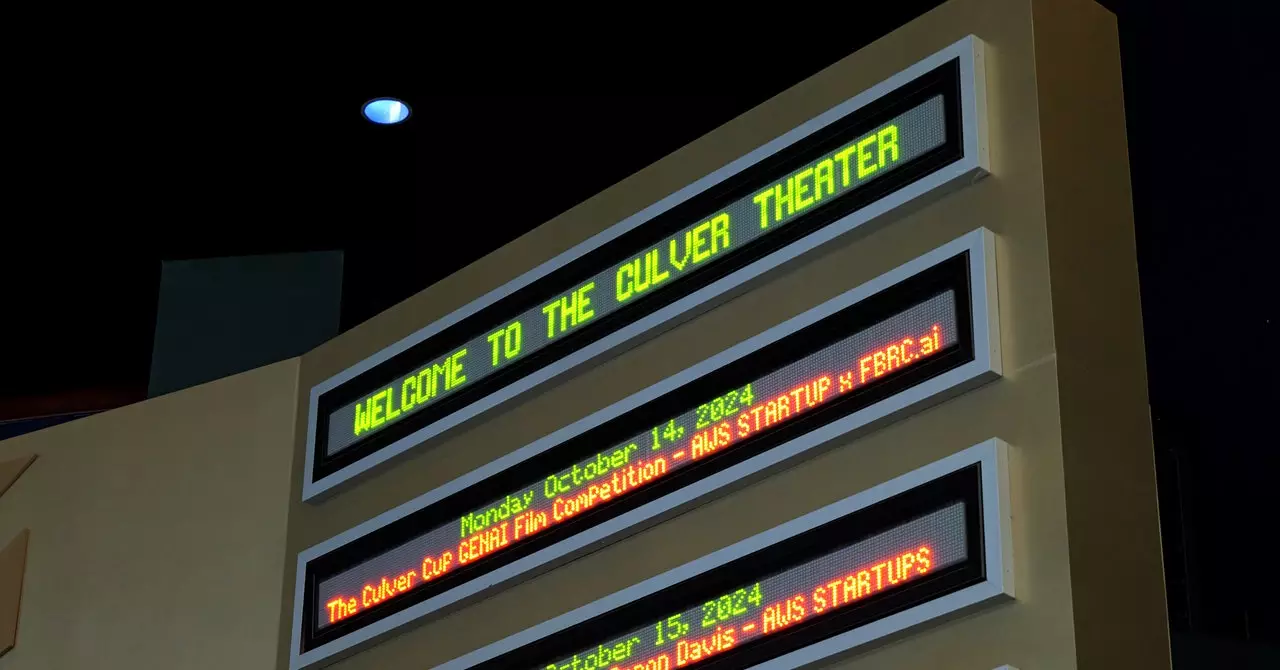The art of storytelling has remained an inherent aspect of human culture, fundamentally rooted in our experiences and emotions. As technology evolves, it has become crucial for filmmakers to retain the essence of storytelling amidst rapid advancements. A recent focus on the integration of artificial intelligence (AI) in filmmaking underscores this shift. Filmmakers are realizing that, while technological tools can aid their craft, the emotional weight of a narrative remains central. The essence of engaging storytelling transcends technological confines, emphasizing that understanding core principles is paramount for creators in any medium.
In the world of AI-generated content, achieving emotional resonance remains a challenge. For instance, a filmmaker working on a short film titled “Mnemonade” harnessed AI technology to embody various characters and convey a poignant narrative about memory loss. Despite the potential of AI to create diverse performances, the filmmaker aptly believed that without authentic emotional dialogue, AI-generated films may struggle to achieve mainstream success. The inherent struggle lies in balancing technological advancements with genuine emotional moments that connect with audiences. This sentiment indicates a broader understanding within the industry that, despite the allure of new tools, emotional authenticity is irreplaceable.
As Hollywood grapples with the implications of deploying AI in film production, legal and financial apprehensions understandably arise. Concerns regarding copyright infringement loom large, particularly as generative AI has the potential to replicate the nuances of existing works. Filmmaker Maddie Hong emphasizes the hesitance of the industry to embrace AI fully, noting that production studios must consider a higher standard for image continuity and distribution across various platforms. The fear of financial loss, coupled with the challenges of navigating legal landscapes, creates a complex context in which the film industry must operate.
Despite concerns, there is a silver lining. Some advocates argue that generative AI can offer innovative pathways for filmmakers, especially in terms of budget constraints and diverse storytelling. The assertion that traditional studios often resort to recycling established franchises rather than creating new narratives speaks to a broader issue of risk aversion within Hollywood. As Amit Jain, co-founder of Luma, suggests, embracing lower-budget or experimental projects could pave the way for more fulfilling career trajectories within the industry.
Moreover, the notion that AI could potentially usher in a new era of creativity, wherein filmmakers collaborate with advanced tools to produce unique content, creates an enticing perspective on the future. However, this optimism is not without its complexity. The question of job displacement looms large, especially as a survey of industry leaders highlights significant concerns regarding job reduction alongside the emergence of new roles. Balancing the introduction of AI with workforce sustainability becomes a pressing challenge for the industry.
Examining the impact of AI, particularly in the realm of visual effects (VFX) and workflow enhancement, reveals mixed sentiments among artists. While AI offers the promise of streamlining tedious processes, it sparks ethical debates regarding its broader effects on job security and creative autonomy. The idea of a collective of friends collaborating using AI to create whimsical films might sound appealing, but the larger implications of such democratized filmmaking raise important questions. Will the proliferation of AI ultimately lead to a dilution of quality, or is it a step toward a more inclusive landscape for storytelling?
Ultimately, the future of filmmaking lies in striking a delicate balance between technology and artistry. As filmmakers navigate this evolving landscape, the emphasis on skill and emotional storytelling will become entwined with the capabilities of AI tools. Comparing generative AI to a musical instrument underscores the necessity of mastery and creativity. Not everyone will produce masterpieces, but those who learn to wield these new tools effectively will define the next chapter in cinematic storytelling. As we look ahead, one cannot help but wonder how the ongoing dialogue between human creativity and technological innovation will shape the narratives of tomorrow. The journey of filmmaking is, after all, as much about understanding the tools at hand as it is about the stories we choose to tell.

